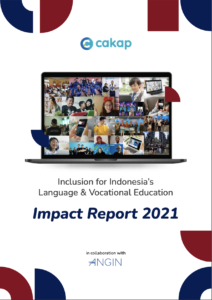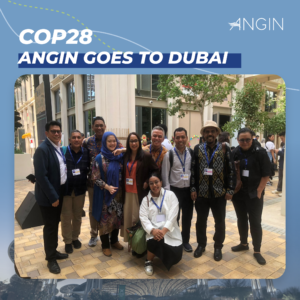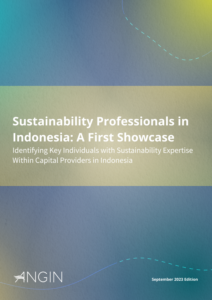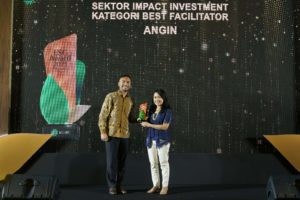[et_pb_section bb_built=”1″ admin_label=”section” custom_padding_last_edited=”on|desktop” _builder_version=”3.0.47″ custom_padding_tablet=”50px|0|50px|0″ transparent_background=”off” padding_mobile=”off”][et_pb_row _builder_version=”3.0.75″ background_size=”initial” background_position=”top_left” background_repeat=”repeat”][et_pb_column type=”4_4″][et_pb_post_title admin_label=”%91HIGHLIGHTS%93 Shinta Kamdani was an expert panelist at the Responsible Business Forum 2017, Singapore” comments=”off” featured_image=”off” _builder_version=”3.0.75″ background_color=”rgba(255,255,255,0)” parallax=”on” parallax_method=”off” parallax_effect=”on” module_bg_color=”rgba(255,255,255,0)” title=”on” meta=”on” author=”on” date=”on” categories=”on” featured_placement=”below” text_color=”dark” text_background=”off” border_style=”solid” /][/et_pb_column][/et_pb_row][et_pb_row _builder_version=”3.0.47″ background_size=”initial” background_position=”top_left” background_repeat=”repeat” _i=”1″ _address=”0.1″][et_pb_column type=”4_4″][et_pb_gallery _builder_version=”3.0.75″ posts_number=”2″ show_title_and_caption=”on” show_pagination=”on” gallery_ids=”6731,6732″ fullwidth=”on” orientation=”landscape” zoom_icon_color=”#ffffff” hover_overlay_color=”rgba(255,255,255,0.9)” background_layout=”light” pagination_font_size_tablet=”51″ pagination_line_height_tablet=”2″ border_style=”solid” /][et_pb_blurb _builder_version=”3.0.75″ url_new_window=”off” use_icon=”off” use_circle=”off” use_circle_border=”off” icon_placement=”top” use_icon_font_size=”off” background_layout=”light” border_style=”solid”]
PANELIST: L to R
Randy Davis, Director Gender Team at UNDP
Anna-Karin Jatfors, Deputy Regional Director, Regional Office for Asia and the Pacific, UN Women
Shinta Widjaja Kamdani, President, Indonesia Business Council for Sustainable Development & Vice Chair, Indonesia Chamber of Commerce & Industry
Dr. Chen Long, Chief Strategy Officer, Ant Financial
Diana Gutierrez, Gender Equality Seal Certification Programme Manager, UNDP
Ingrid Guzmán, Vice President for Regional Business Support & Assistant General Manager, Scotiabank, Costa Rica
[/et_pb_blurb][/et_pb_column][/et_pb_row][et_pb_row admin_label=”row” _builder_version=”3.0.75″ background_size=”initial” background_position=”top_left” background_repeat=”repeat” _i=”2″ _address=”0.2″][et_pb_column type=”4_4″][et_pb_text admin_label=”News Content” _builder_version=”3.0.75″ background_color=”#ffffff” background_size=”initial” background_position=”top_left” background_repeat=”repeat” background_blend=”lighten” text_orientation=”justified” custom_padding=”20px|20px|20px|20px” saved_tabs=”all” background_layout=”light” border_style=”solid”]
ANGIN participated in the 5th Responsible Business Forum on Sustainable Development Forum held in Singapore, 21-23 November 2017. Ibu Shinta Kamdani was one of panelists in the Gender Equality Workshop (SDG 5).
It was a fascinating discussion that covered a range of important issues affecting gender equality from barriers to entry into the labour market, access to finance, reducing the gender wage gap and women’s representation at the higher echelons of the business world. Even today, when women make up around 45% of employees in S&P 500 companies, they remain woefully underrepresented at senior management levels with only around 5% of S&P 500 companies having women CEOs¹. While many people are increasingly aware of these issues there still appears to be a large gap in awareness and action.
Ibu Shinta made a point of highlighting that overcoming the challenges faced by women in the labour market requires collective action. Key stakeholders from all segments of the economy need to collaborate in order to ensure that policies designed at reducing all facets of gender equality are covered. She noted that one key way of ensuring that collective action was undertaken was to put a spotlight on the benefits of reducing gender equality.
From the business sector’s perspective, the benefits centre on increased productivity and profits and from the government’s perspective reducing gender equality has the potential to boost an economy’s productive capacity, which in turns boosts economic growth and development. For example, the World Economic Forum’s 2017 Global Gender Gap Report suggests that that closing the gender gap in economic participation by 25% by 2025 could increase global GDP by US$5.3 trillion².
Citing seminal research, the panelists noted that boards, which had higher female representation, tended to perform better than those with less. They also highlighted that empirical evidence suggests that there is a positive correlation between increased gender diversity and workplace sales outcomes and also innovation at organisations.
Ibu Shinta also raised another crucial point –the modern economy is increasingly driven by entrepreneurship. However, women entrepreneurs face significant hurdles at almost all stages entrepreneurship. Ibu Shinta noted that women entrepreneurs face 3 main hurdles:
- Limited access to networks/markets
- Limited access to financing/collateral and are dependent on husbands for decision making
- Lack of basic business skills
While some solutions, such as microfinance, do exist, they do not go far enough. Ibu Shinta noted that other sources of funding are needed beyond microfinance to take businesses to the next level. Collaboration between the business sector and the government can play an important role here too. In addition to these challenges, Ibu Shinta pointed out the importance of mentoring and how a lack of mentors for women also created a challenge.
Overall, the Gender Equality Workshop covered many thought-provoking issues and perhaps most importantly, provided potential solutions for overcoming critical challenges. Here at ANGIN we look forward to using some of the insights in supporting how we can help improve the gender-related challenges in the Indonesian startup ecosystem.
For more information on this, kindly contact riaz@angin.id or christie@angin.id
¹ http://www.catalyst.org/knowledge/women-sp-500-companies
² http://www3.weforum.org/docs/WEF_GGGR_2017.pdf
[/et_pb_text][/et_pb_column][/et_pb_row][/et_pb_section]




